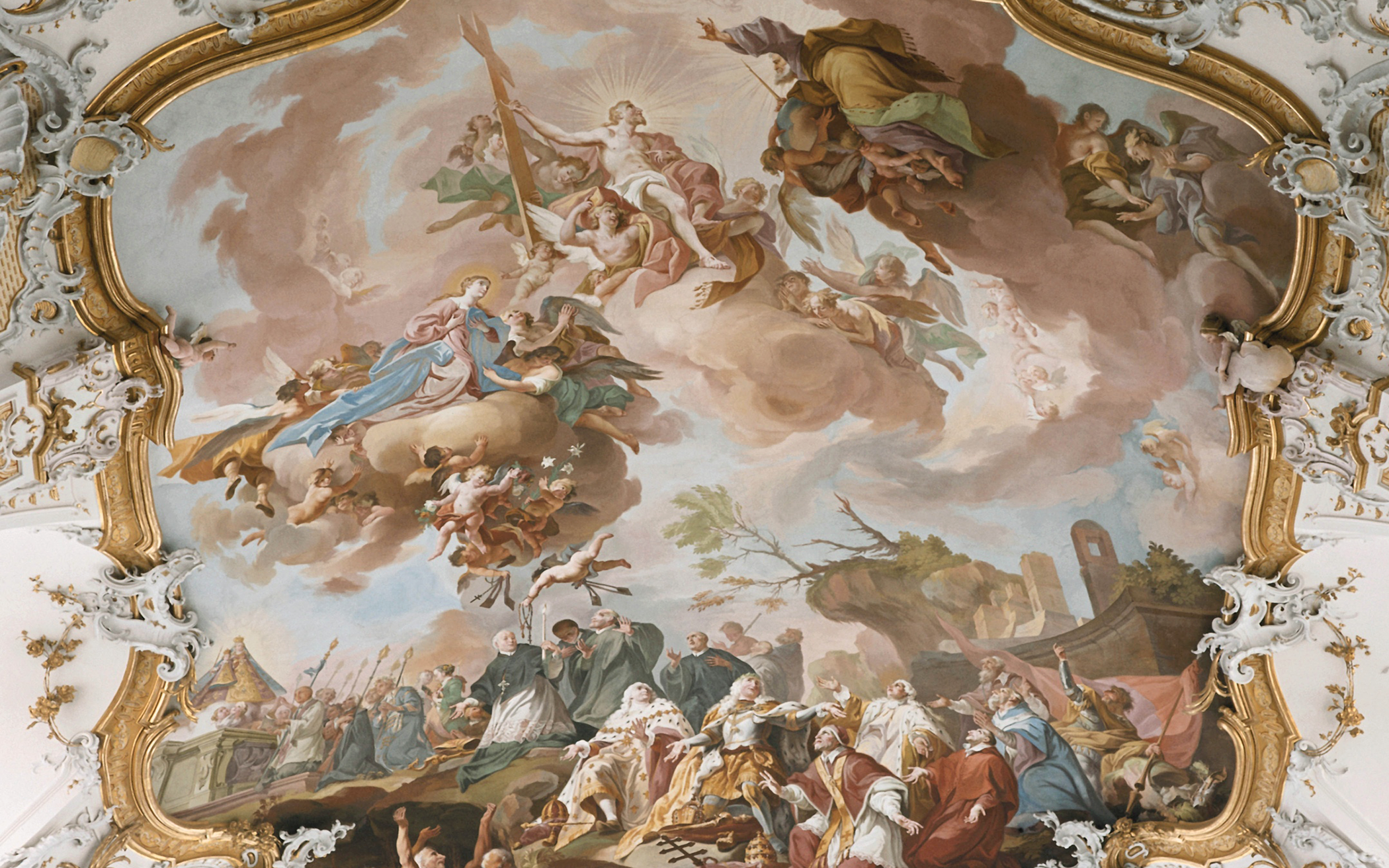At the beginning of his confessions, Augustine says to God, “You have made us for yourself, and our hearts are restless until they rest in you.” This statement is probably more quoted than anything else Augustine wrote, for here he captures a common human experience.
We sense that we are made for something more than our everyday life. We try meeting that restlessness in all sorts of ways—through working hard or pursuing pleasure or investing in our families—but none of those things quite satisfy our nagging longing.
Christians confess that this restless longing is a sign we are made for God. We’re looking for the home we were made to rest in, and that home is God himself. As the Westminster Catechism puts it, our chief end, or purpose, is to glorify and enjoy God forever. We find our rest only when we have the relationship with God we were created to have.
Our Existential Problem
Yet when we try to enter into a relationship with God, we run into problems. So many things separate us from God. Sin separates us, of course, but even apart from sin we find that a relationship with God is beyond us.
Even before the fall, Adam needed someone other than God as a companion and friend; he needed a helper who was like himself, fit for him. God is the help beyond all others, but he is not “fit” for us in the way Eve was fit for Adam. God is the Creator; we are merely creatures. God is the maker of space and time, transcending both; we are finite and temporal, incapable of functioning outside the limits of space and time. God is spirit; we are embodied. God is unchanging; we are constantly in flux. God is always out of our reach, not domesticated or accessible. He is not bone of our bone, flesh of our flesh.
This is the great existential problem that all human beings face: we are made to be in relationship with God, but God is out of reach.
Jesus’ Ascension is the answer to this great existential problem. God has come to be with us through the incarnation. He has become a human being, like us in every way but sin. But this is not just a historical fact out of the past. The incarnation continues. Jesus Christ, still fully God and fully human, is ascended into the presence of his Father, where he is even now working as our high priest, the one who bridges the gap separating us from God. He was and still is bone of our bone, flesh of our flesh.
The Ascension affirms the goodness of our full humanity, including our bodies. Jesus has already received his resurrection body, just as we will someday. In his person he unites divinity and humanity, so that he himself becomes the bridge between God and us. This is an ongoing work. Right now, at this moment, the person of Jesus is the point of contact between us and the Father.
The book of Hebrews tells us that Jesus is leading us into rest, that is, Jesus is leading us into the relationship with God for which we were designed. Jesus has “passed through the heavens” into the throne room of God, and now through Jesus we too are given access to that throne room. We may now “approach the throne of grace with boldness, so that we may receive mercy and find grace to help in time of need”
(Heb. 4:14-16, NRSV).
God’s divine help has now been translated into a form fit for us in the person of Jesus Christ, our ascended high priest. In his book The Last Things Herman Bavinck explains, “The Son is not only the mediator of reconciliation (mediator reconcilionis) on account of sin, but even apart from sin he is the mediator of union (mediator unionis) between God and his creation” (p. 122). The gap between Creator and creature, infinite and finite, is bridged in the person of Jesus Christ.
Setting Our Minds Where Christ Is
Our access to the triune God is always through our union with the humanity of Jesus, and it is right for us to speak to Jesus, to share our sorrows and pains with him, so that we may “find grace to help in time of need.”
It is also right for us to share in his priestly work by bringing the sorrows and pains of others to him in prayer. Through prayer we enter into the mediating work of Jesus, becoming mediators for the world. It is the most powerful tool we have in the work of transforming and claiming the world for Jesus Christ. Through prayer we join ourselves to his priesthood and become channels of his mediating love.
Jesus’ Ascension requires us to think about heaven and to live toward the new creation. In his 2003 convocation address at Calvin Seminary, Professor Calvin Van Reken demonstrated that the Christian Reformed understanding of heaven shifted in the last part of the 20th century. He pointed out that in the most recent edition of the Psalter Hymnal, many references to heaven have been taken out, replaced with language that is more affirming of our present experience in the world. For example, instead of asking the Spirit of God to “wean us from earth,” we instead ask him to “wean us from sin.”
Such changes reflect a laudable desire to invest in this world as faithful stewards and to resist the escapist tendencies of fundamentalism. But Van Reken argues (rightly, I believe) that we have now gone too far in the other direction, to the point that we may be uncomfortable speaking of our hope of heaven and unwilling to understand ourselves as pilgrims and strangers whose true home is elsewhere.
Images of pilgrimage and estrangement fill the New Testament, and the Ascension is the reason for them. Our home is wherever Jesus is, and we can never feel fully at home in this world as long as he is elsewhere. So in Colossians we read, “If you have been raised with Christ, seek the things that are above, where Christ is, seated at the right hand of God. Set your minds on things that are above, not on things that are on earth, for you have died, and your life is hidden with Christ in God” (3:1-3).
It’s true that Jesus is always with us in his divine nature and through the work of the Holy Spirit, but it’s also true that in another sense he is genuinely absent from us. If we love Jesus, then we should miss him, long for him, think about him, and anticipate the day when we will see him face to face. His human body is the new tabernacle in which God meets us, the temple which is both the Father’s house and our true home as well (John 2:21, 14:2). May God “haste the day when our faith will be sight,” the day when we will find our rest in union with our ascended Lord. n
Talk about how the Ascension is an essential part of your Christian faith.
For Discussion
- How does this quote from Augustine apply to your life?: “You have made us for yourself, and our hearts are restless until they rest in you.”
- What prevents us from finding our rest in God?
- How does Jesus’ Ascension help us overcome this difficulty?
- How is Jesus now our Mediator, our bridge to God?
- How can we “share in Jesus’ priestly work”?
- Is it wrong to “hope for heaven”? Do you? Why (not)?
About the Author
Dr. Laura A. Smit is dean of the chapel at Calvin College, Grand Rapids, Mich., and author of Loves Me, Loves Me Not: The Ethics of Unrequited Love (Baker, 2005).





